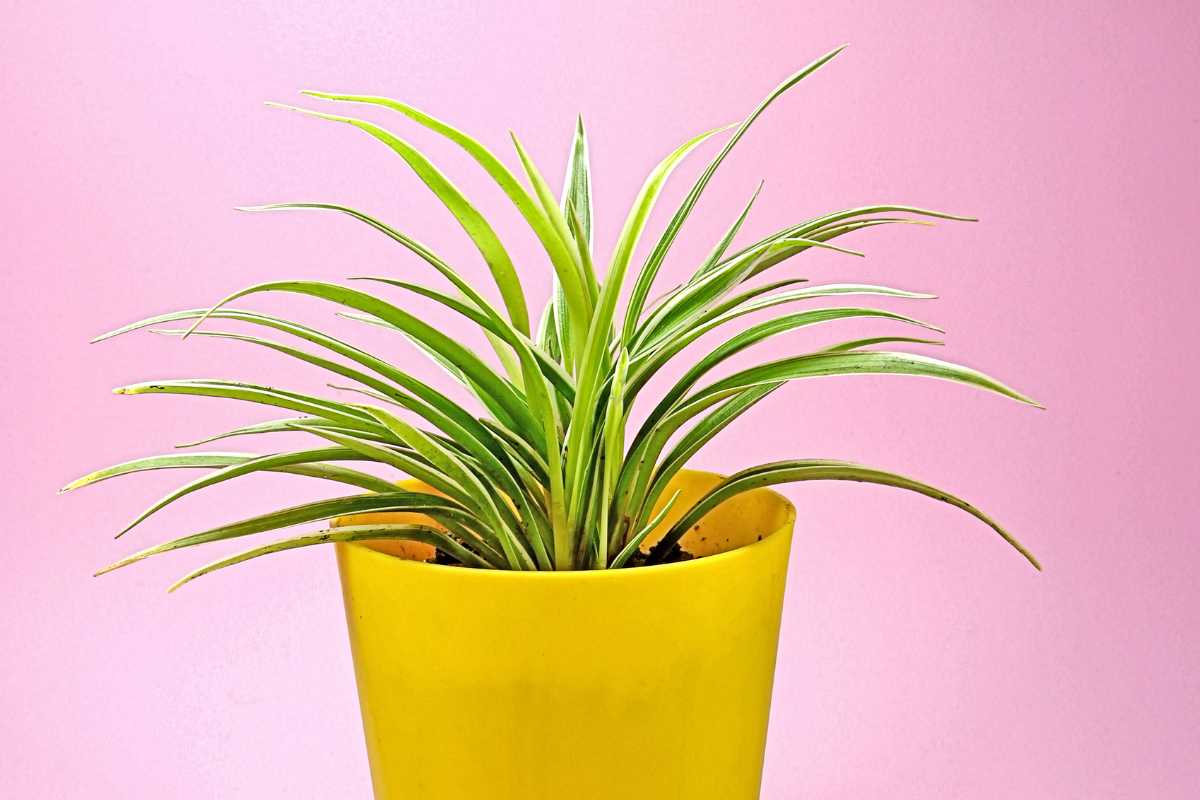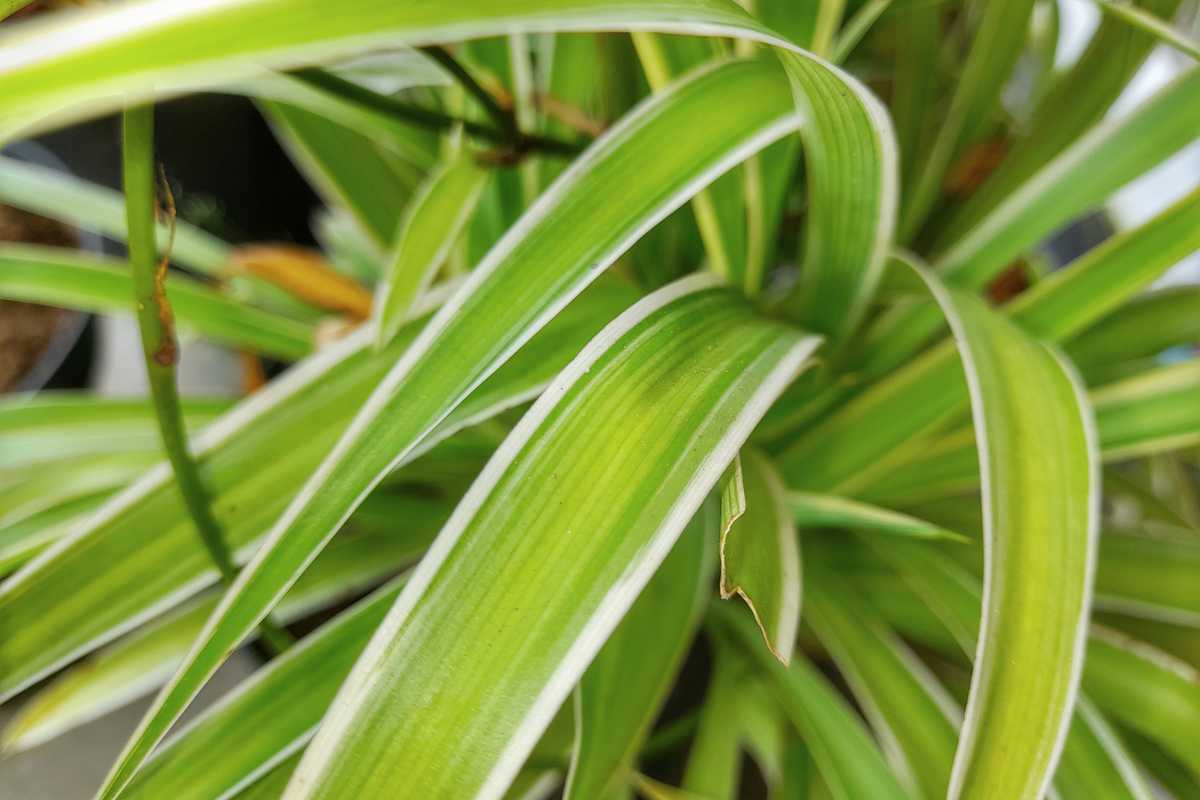Spider plants (Chlorophytum comosum) also known as ribbon plants or airplane plants are very popular as houseplants. Originally from Africa, these plants are very easy to grow and can live for decades in the house.
A common question rabbit owners have is if spider plants are safe for their pets. And yes, you will be happy to know that these excellent plants are completely safe for pets, including house rabbits.
So if your curious rabbit decides to have a taste, you should be more worried about the health of your plant than your bunny. Fortunately, there are easy ways to prevent your spider plant from being chewed on.
- Related article: Taking Care of a Spider Plant
If protecting both your spider plants and your rabbit is something that you want to observe at home, then read on.
Are Spider Plants Toxic to Rabbits?

Spider plants are completely safe to keep around rabbits, as they aren’t toxic or poisonous to them. The American Society for the Prevention of Cruelty to Animals (ASPCA) has confirmed that these plants aren’t dangerous for other pets either.
This is good news since rabbits love to munch on greens and could easily get curious and decide to try your spider plants’ dangling leaves. In fact, the greatest danger is for your plant, which could get damaged if it gets chewed on too much.
Here’s a list of houseplants that are rabbit safe:
- Money plant or money tree
- Dandelion plant
- Cotton plant
- Lipstick plant
Not all indoor houseplants are safe though. There are many poisonous plants, some of them very common, that shouldn’t be kept in a house with a rabbit.
Toxic houseplants for rabbits are:
- Monstera deliciosa
- Aloe vera
- Pothos
- Easter lily
- False jasmine plants: Carolina jasmine or Yellow jasmine
Although these plants are not rabbit safe, if you own them already and don’t want to get rid of them altogether, you can place them high up where your pet rabbits can’t reach.
You might have heard that spider plants have hallucinogenic effects on some animals or can cause sickness.
Even if they aren’t poisonous to cats and dogs, if they eat too much they can experience some vomiting and diarrhea. The reactions are usually quite mild but fortunately, nothing of the sort has been reported for rabbits.
As for the hallucinogenic effects, the only animals that get affected are felines. This is probably why many cats are attracted to spider plants. In general, it’s a good practice to keep these plants away from pets.
Spider Plants and Rabbits

Having established that spider plants aren’t dangerous for wild rabbits, let’s talk about the effects of these animals on your plants.
Unfortunately, rabbits enjoy digging into any sort of ground, so they could easily wreak havoc among your popular houseplants.
They are also curious and always on the hunt for food. By chewing on the leaves, they leave open wounds that can expose your plant to attacks by bacteria and fungi.
Keep in mind that even if this plant isn’t toxic to your furry friend, it’s still not part of their diet. So for the safety of both your pet and your spider plant, you should avoid feeding your pets with it.
Anyway, there are more safe plants that are healthier than sugary treats which you can give to your rabbits. A mix of leafy greens everyday is a staple that you can introduce to their diet.
How to Keep Spider Plants Away From Rabbits
It’s relatively easy to keep spider plants away from rabbits. Since they look quite beautiful with their leaves and little babies cascading down, they are well suited to be placed in hanging baskets, high up out of a rabbit’s reach.
The positive aspect of spider plants is that, unlike many other species, they don’t often drop leaves, so you won’t have to worry about your rabbit finding them around the house and developing a taste for them.
Other options include placing them on a high shelf or keeping them in the bathroom where your pets don’t have access to plants. This will also benefit your spider plant as it loves humidity.
Rabbits can also be trained to stay away from numerous houseplants. Some people advise using a water mister on the rabbit every time you see him getting too friendly with spider plants.
Distracting your rabbit with more interesting toys is another option. If they’re already busy, they will be less likely to look for entertainment in the form of your houseplants.
If the problem is your rabbit digging up the soil, you can consider adding a top layer of pebbles. This should prevent them from reaching the soft ground underneath and keep your plant safe and your house clean.
Final Thoughts if Spider Plants Are Toxic to Rabbits
Overall, spider plants are a good option for rabbit owners because this ornamental plant can elevate any area in the house and is not toxic to your pet.
However, because this plant is not generally part of a rabbit’s usual diet, you should still keep your bunny away from it. The rabbit will also do the plant more harm than the other way around.
To do this, keep this plant out of the rabbit’s reach by hanging it in tall places. You may also store you spider plants in a room that is not frequented by your pets, or train your bunny not to eat them.
With these preventive measures, you can have a harmonious living space where your beautiful spider plant and happy rabbit can co-exist.
Do you want to learn more about spider plants and their effects on other pets? Check out these awesome articles:

